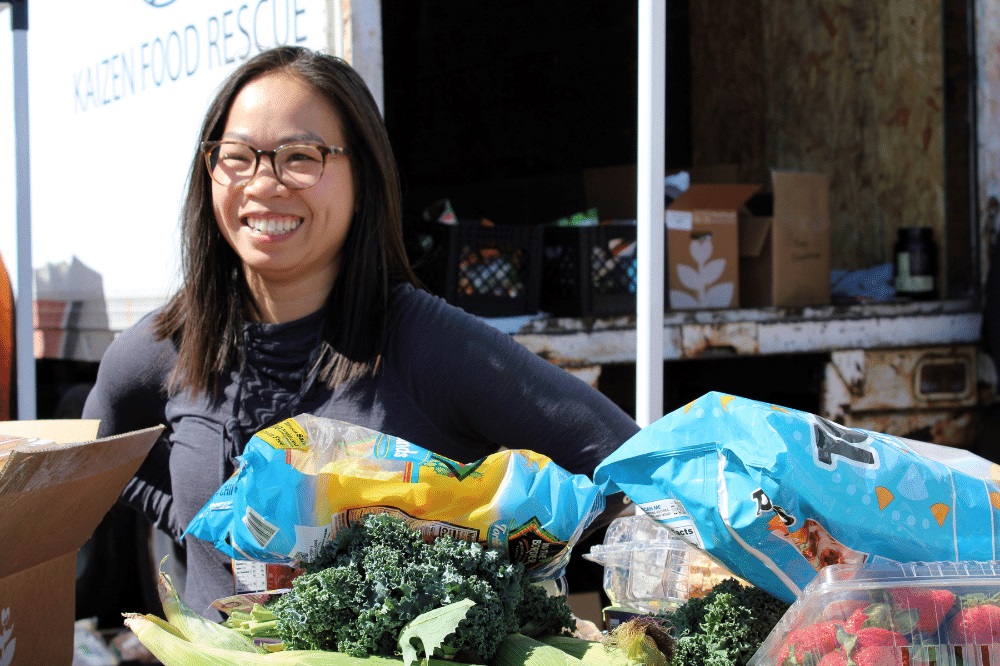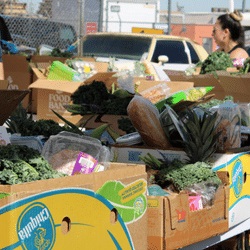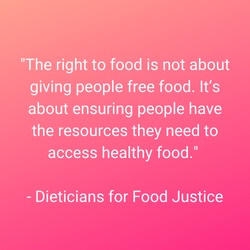
Kaizen Food Rescue Bringing Food Sovereignty to Denver Communities
Food Sovereignty Is A Part of Thai Nguyen’s Own Healing Journey
On a sunny morning in Englewood, a line of 20 cars wraps around a block. Their drivers – the majority of whom are Latina mothers and their children, grandparents, and essential workers – patiently await their turns for a mobile, no-contact “food pop-up” through Kaizen Food Rescue. All of them drive off with fresh produce and nutrient-dense, culturally relevant food, such as organic kabocha, daikon, jalapenos, poblano peppers, pinto beans, farm fresh eggs and mushrooms.
 In 2021, Kaizen Food Rescue, a Women & Girls of Color grantee, redistributed nearly 5 million pounds of food and more than 32,000 kids’ meals to communities facing food insecurity. Founded by Thai Nguyen, a mom of three and former product designer and event manager, food sovereignty is as much a part of her own healing journey as it is for the communities she works in.
In 2021, Kaizen Food Rescue, a Women & Girls of Color grantee, redistributed nearly 5 million pounds of food and more than 32,000 kids’ meals to communities facing food insecurity. Founded by Thai Nguyen, a mom of three and former product designer and event manager, food sovereignty is as much a part of her own healing journey as it is for the communities she works in.
Before settling in the U.S. in 1981, her family experienced the realities of food insecurity at refugee camps in four separate countries. And they experienced it again living in America after Hurricane Andrew. Given her own experience, Thai finds it inconceivable that U.S. businesses spend $408 billion a year growing, transporting, processing, etc. food that is never even consumed.
“It lit a fire under me,” she said. “I know grassroots efforts to meet food insecurity demands are the best efforts our system currently affords.”
From a free food table to 250 mobile food pop-ups per year
The fire first sparked in 2019 when Thai and other parents at her children’s school created a free food table for other families, almost half of whom were previously on a federal lunch program, but the school was new and not yet part of the program. Thai volunteered because she had an Astro Van and could help with food transportation.
 In 2020, the pandemic was like an accelerant for Thai as she witnessed food access became more and more limited, and who didn’t have access to it became more evident. Hunger Free Colorado found that over 50% of BIPOC individuals were food insecure and food insecurity as a whole tripled due to COVID-19. She officially started Kaizen Food Rescue to prevent food waste and improve food justice and health equity in the Denver metro area.
In 2020, the pandemic was like an accelerant for Thai as she witnessed food access became more and more limited, and who didn’t have access to it became more evident. Hunger Free Colorado found that over 50% of BIPOC individuals were food insecure and food insecurity as a whole tripled due to COVID-19. She officially started Kaizen Food Rescue to prevent food waste and improve food justice and health equity in the Denver metro area.
“We are really conscious about the intersection of food insecurity – it’s not just about food,” Thai said. “There’s a whole host of social and economic issues around who has access to fresh food and it boils down to classism and systemic racism.”
What started as a table of fresh food only three years ago, has grown to include more than 20 partners – including distribution partners such as Head Start and suppliers including Food Bank of the Rockies – 20+ volunteers, and more than 250 mobile food pop-up events each year. It also includes a youth-nurtured and BIPOC-led community garden with educational components.
“I really love working with kids,” said Thai. “Seeing them learn about our local food system and them trying new, nutritionally dense foods brings me joy.”
The mobile pop-ups have evolved as Thai spent more time in communities and she became all too familiar with the emotional labor of obtaining food assistance and access to other basic needs, such as diapers.
Bringing more than food to communities
Obtaining food is a laborious process, especially for those who don’t speak English, noted Thai. “I went through the process of applying for SNAP and it was appalling. We now have community navigators – promotoras – Latinx community leaders who have been trained through programs to navigate the system to help others.”
Volunteers at the mobile food pop-ups now ask recipients to fill out a simple survey that asks what types of food or resources they would like Kaizen Food Rescue to provide. Thai emphasizes that the surveys help Kaizen Food Rescue continually retool their offerings. “We have distributed PPE and offered COVID testing sites and even voter registration,” she said.
Other organizations took notice. They saw the culturally relevant work that Kaizen Food Rescue was doing and wanted to bring it to their constituents. Jefferson County granted $312,000 to Kaizen Food Rescue to get healthy food out to Jeffco residents in 2020. Food Bank of the Rockies, Kaizen’s largest food supplier, worked with Kaizen Food Rescue to create an action plan on how to better serve communities of color.
Kaizen Food Rescue’s next step toward food sovereignty is under construction
Kaizen Food Rescue’s next endeavor is under construction. It is partnering with Commún to build a 2,100+ square foot food hub and community farmer’s market in Loretto Heights, a community center and an affordable housing historic redevelopment project in Denver. Although Kaizen Food Rescue will continue its food pop-ups throughout the metro area, this will be considered its flagship store.
“There will be no cost for the community members who want to access food grown by BIPOC farmers and producers, such as Mile High Farmers and the Black and Brown Growers Collective.”
All will be funded by donations, grants, foundations, individual donations.
Kaizen Food Rescue is a Front Range grantee of our Women & Girls of Color Fund.

